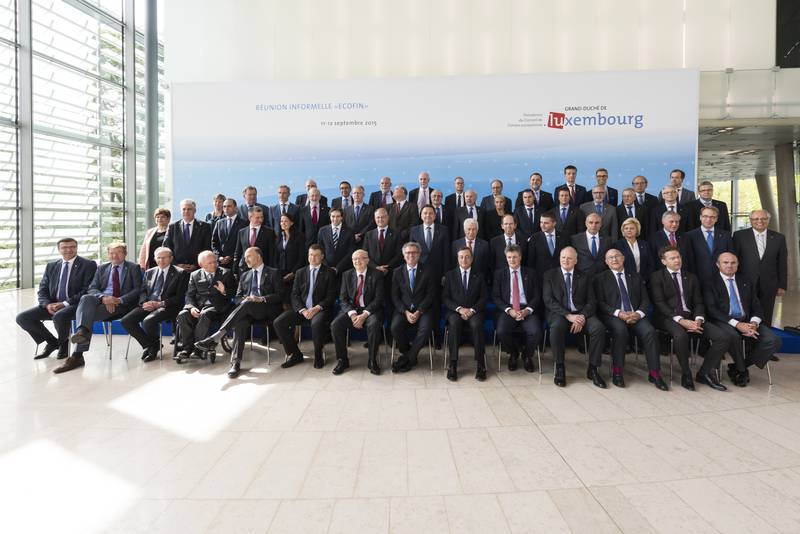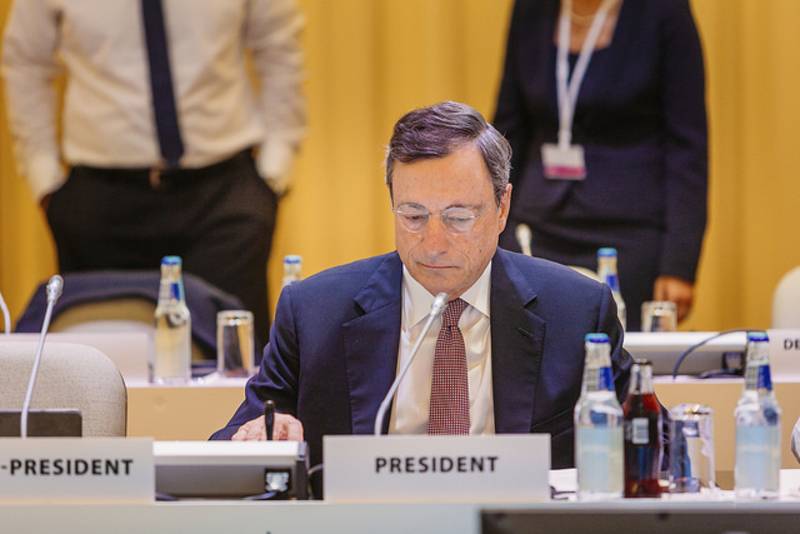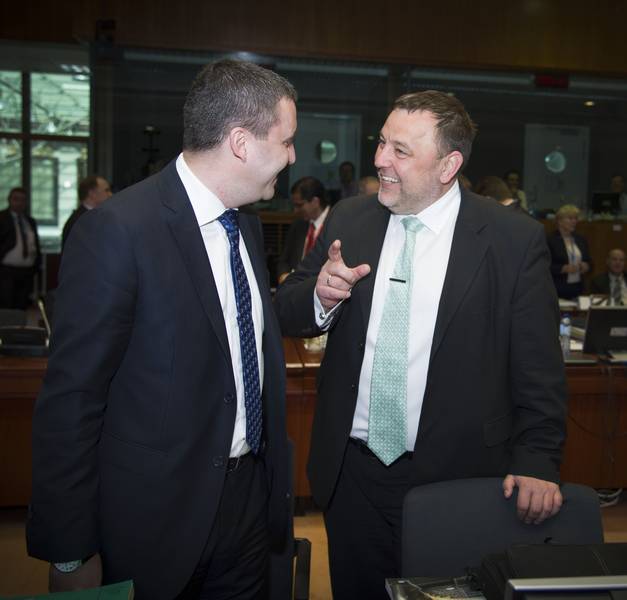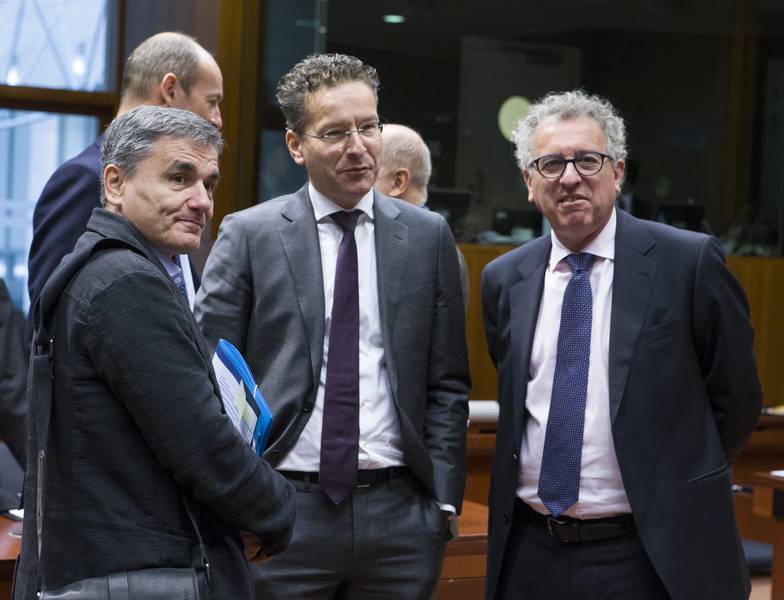A Tax Revolution in the Making in EU
Adelina Marini, October 5, 2015
 Europe’s stiff-neckedness is difficult to cure. To come to an agreement for supranational treatment of a certain issue there needs to be a large cataclysm or at least a large scandal. In the case of taxation policy the problem begins to gain urgent and most importantly European status after the breaking of the “Lux Leaks" scandal last year when a network of investigative journalists revealed that Luxembourg applied uncompetitive tax practises towards large multinational corporations thus allowing them to pay close to no tax in the EU. The scandal erupted just at the same time as former Luxembourg PM Jean-Claude Juncker, who spent several terms in office, headed the European Commission and with the ambition to make taxation policy supranational. Because of the Luxembourg scandal the first ad hoc parliamentary committee was set up in the European Parliament to deal exactly with tax rulings of member states. At the moment, this is one of the pressure groups on capitals to stop what European Commissioner for Economic and Financial Affairs Pierre Moscovici calls double non-taxation.
Europe’s stiff-neckedness is difficult to cure. To come to an agreement for supranational treatment of a certain issue there needs to be a large cataclysm or at least a large scandal. In the case of taxation policy the problem begins to gain urgent and most importantly European status after the breaking of the “Lux Leaks" scandal last year when a network of investigative journalists revealed that Luxembourg applied uncompetitive tax practises towards large multinational corporations thus allowing them to pay close to no tax in the EU. The scandal erupted just at the same time as former Luxembourg PM Jean-Claude Juncker, who spent several terms in office, headed the European Commission and with the ambition to make taxation policy supranational. Because of the Luxembourg scandal the first ad hoc parliamentary committee was set up in the European Parliament to deal exactly with tax rulings of member states. At the moment, this is one of the pressure groups on capitals to stop what European Commissioner for Economic and Financial Affairs Pierre Moscovici calls double non-taxation.
The battle between national and supranational in the field of EU taxation policy is quite old. It reappeared on European institutions’ radar during the euro area crisis, when the worst-off states were trying to mend their thinning budgets reaching consciously or unconsciously to fields avoided so far like tax evasion and fraud. But even the deep debt crisis in the euro area was not enough to reach an agreement on the bravest tax proposal of the EC so far – the one for a Common Consolidated Corporate Tax Base (CCCTB). A part of these efforts was even the called emergency EU summit in May 2013 that was dedicated exactly to tax evasion and fraud. Alas, this summit never produced anything to be remembered with. Moreover, the leaders of the 27 member states (Croatia was not a member yet) preferred to try and achieve some sort of success at the global level and only then think about any common action on European level.
Two years later, there already are inclinations not to wait for an agreement on the global level (G20). “If we don’t manage to convince our friends in the G20 we should at least do it in Europe,” said EC boss Jean-Claude Juncker in the European Parliament recently. 2015 can certainly be marked as the year when busy preparation commenced for a tax revolution. In March, the EC presented a package of measures for transparency in taxation. One of these measures is exactly what the leaders discussed at the May 2013 summit – an automatic exchange of information on tax rulings*. At the moment, member states decide for themselves whether their tax practises have any effect on other states. The lack of transparency on tax rulings in different members is being used, according to the EC, by some multinational companies to lower their tax liabilities.
The EC is certain the automatic exchange of information will allow member states to uncover some fraudulent tax practises by a certain company and take the necessary actions accordingly. For instance, McDonald's are under investigation at the moment for tax evasion, but for lack of automation and other elements of a more common tax policy the company is not being scrutinised in other countries. The package presented in March provides also for a revision of the Code of Conduct on Business Taxation. At the moment, this is one of EU’s strongest instruments in guaranteeing loyal competition regarding corporate taxation.
In June, the EC dusted out the proposal for corporate tax reform that Ireland is getting shivers from. The proposal will be slightly modified, but the core of it will be preserved and split into two phases to circumnavigate the large resistance in the Council. The new concrete proposal is expected next year. The EC is adamant, however, that, while it is true that mistakes from the previous discussion of the proposal should be avoided, rejecting it will also be a mistake. Negotiations on the Common Consolidated Corporate Tax Base (CCCTB) froze in 2011, but the EC believes that, although there is no enthusiasm in the Council, a change of moods is possible.
The EC’s renewed activity on this issue would have remained pure documentary if the subject had not been taken up in earnest in the beginning of this political season with two unique events. For the first time in European Parliament history two special hearings took place. The first one was on September 17th during the joint meeting of the EP Economic committee and the specialised committee on tax rulings. What was unique about this meeting was the fact that for the first time a EC President appears in front of a committee. Usually the Commission leaders appear in plenary or at the meetings of political group leaders, but never in a committee. According to Jean-Claude Juncker, his decision to appear at this hearing is nothing but normal, for the battle against tax evasion is one of the EC’s priorities, as he himself stated at his first hearing in EP more than a year ago.
 The second unique hearing happened a week later in the specialised committee on tax rulings where four Ministers of Finance appeared in front of its members. The Finance Ministers of Germany, France, Italy, and Spain were answering questions about the EC’s new tax package. Individual Finance Ministers appearing became a common practise during the European Parliament’s previous term, but the appearance of four ministers and what is more – the appearance of the ministers of the four largest EU economies – was indicative for the importance of the subject. Apart from EP hearings the Commission’s proposals were also discussed during the informal meeting of EU finance ministers in Luxembourg on September 11th. Ironically, the EC’s actions provoked by “Lux Leaks” get so much attention during Luxembourg’s rotating presidency term.
The second unique hearing happened a week later in the specialised committee on tax rulings where four Ministers of Finance appeared in front of its members. The Finance Ministers of Germany, France, Italy, and Spain were answering questions about the EC’s new tax package. Individual Finance Ministers appearing became a common practise during the European Parliament’s previous term, but the appearance of four ministers and what is more – the appearance of the ministers of the four largest EU economies – was indicative for the importance of the subject. Apart from EP hearings the Commission’s proposals were also discussed during the informal meeting of EU finance ministers in Luxembourg on September 11th. Ironically, the EC’s actions provoked by “Lux Leaks” get so much attention during Luxembourg’s rotating presidency term.
Not Lux Leaks, but EU Leaks
Knowing full well that his appearance before two EP committees will provoke a rerun of his last year’s hearings in connection with the “Lux Leaks” scandal, Jean-Claude Juncker demonstrated that the subject does not scare him in the least. He repeated the argument he used in his defence last year that the problem did not belong just to Luxembourg for such tax practises are present in a number of member states. Thus there should be no more talk of “Lux Leaks”, but of “EU Leaks”. At the end of the hearing European Commissioner on Competition Margrethe Vestager (Denmark, ALDE) appeared in front of MEPs and confirmed that her teams’ investigations show that there are many tax practises in a number of member states that distort competition. As long as the EU’s tax practises are fragmented the common market will not be complete, noted the leader of the EC. He reminded that taxation has always been a difficult issue for the EU.
From the height of his position of political veteran both on European and national levels (being Prime Minister and Minister of Finance of Luxembourg for more than a decade and as such a President of the Council) Mr Juncker reminded that back in ’91 it proved to be quite a feat to persuade the Brits that Europe should have a say in tax policy. A major hindrance to all this has ever been the requirement for a unanimous decision in the Council. Something talked about by some of the Ministers of Finance in front of the European Parliament a week after Juncker. He reminded of his idea from back in 2005 to create a tax committee that is to be written down in the Treaty of Lisbon, but he got no support from the Council, nor from the EP. Taxation must have the same importance as any other subject, he said. He warned that taxation practises of member states are not intrinsically bad. A problem appears when they start to be abused.
The current system has already turned into an unjust and opaque one. Some are benefiting from this for they can hide behind different national rules. Others are losing from that, however. Practically competition is artificially created between multinational corporations and small and medium enterprises. It is important that member states come up with a common approach because of the common market. Profits should be taxed in the country where they are generated, added the EC boss and appealed for speeding-up of the work on corporate tax reform. European Commissioner for Economic and Financial Affairs Pierre Moscovici (France, Socialists and Democrats) said during the hearing that a true tax revolution is sought – regarding transparency, simplification, and effectiveness of tax systems.
The main goal of this revolution will be avoiding double non-taxation. Pierre Moscovici admitted to a lack of enthusiasm among member states and thus urged the EP to exert heavy pressure on them. Alas, as was to be expected, many of the MEPs that joined the debate with Jean-Claude Juncker and Pierre Moscovici focused on the responsibility of the former Prime Minister of Luxembourg and creator of the unsavoury tax practises. Many of the MEPs, however, complained that their work on investigating member states’ taxation practises are being hindered by rules of confidentiality and lack of access to important documentation, including from the European Commission. The question was raised about state aid as a factor distorting competition on tax level.
Spirits at the informal meeting of the EU’s financial ministers a week before Jean-Claude Juncker and Pierre Moscovici’s hearing were by far not as revolutionary. According to Luxembourg Minister of Finance Pierre Gramegna, who currently presides the Council of Finance Ministers, there is an agreement among the ministers that the too low or zero taxation of transnational companies is no longer acceptable. Double non-taxation is to be avoided. Minimum taxation is one of the means by which tax evasion is to be tackled, added the minister and stressed that freedoms, granted in the EU founding treaties must be respected.
Tax base erosion and profit shifting
 During the hearing of the finance ministers of Germany, France, Italy, and Spain it became clear that every state has its own priorities, regardless of the converging positions on the hottest issues. To Italian Minister of Finance Pier Carlo Padoan it is extremely important that a debate is started on the European level about tax base erosion and profit shifting. The Organisation for Economic Co-operation and Development (OECD) is working on a huge document in this direction that is to be presented on October 5th. This and the battle against aggressive tax planning are the most important issues to Italy. To solve the problem with tax base erosion at the European level first of all there is need to reinforce the directives covering business law. Mr Padoan expressed support also to the decision of the EC to bring out from the closet the proposal for a consolidated corporate tax base. The “step by step” approach must be encouraged, he said.
During the hearing of the finance ministers of Germany, France, Italy, and Spain it became clear that every state has its own priorities, regardless of the converging positions on the hottest issues. To Italian Minister of Finance Pier Carlo Padoan it is extremely important that a debate is started on the European level about tax base erosion and profit shifting. The Organisation for Economic Co-operation and Development (OECD) is working on a huge document in this direction that is to be presented on October 5th. This and the battle against aggressive tax planning are the most important issues to Italy. To solve the problem with tax base erosion at the European level first of all there is need to reinforce the directives covering business law. Mr Padoan expressed support also to the decision of the EC to bring out from the closet the proposal for a consolidated corporate tax base. The “step by step” approach must be encouraged, he said.
Most-federalist in his views was French Minister of Finance Michel Sapin, who said that France could accept “a little tax competition”, but when it goes too far it becomes harmful. Thus a set of collective rules must be imposed to battle the harmful tax competition and aggressive tax planning. Mr Sapin again talked about the need for harmonisation of corporate tax but admitted it is an issue that requires unanimity. In spring, when it became clear that the EC is planning on resurrecting the proposal, Irish Prime Minister Enda Kenny again reminded that Ireland remains against the idea of a common consolidated tax base. He said, however, that Dublin was ready to participate constructively in the debate over the EC’s new proposal. Michel Sapin stated that France supports the new EC approach to corporate tax and regards it as far more pragmatic.
Spanish Finance Minister Luis de Guindos said that the variety of tax policies presents an obstacle to SMEs as opposed to large companies. There needs to be a balance found between income and taxes paid to ensure tax fairness. The solution is closer cooperation at the European level, he said. His German colleague Wolfgang Schäuble thinks that some specific criteria for tax rulings need to be established. Now is the moment to create some minimum benchmark for taxation. He reminded that such legislation needs unanimity. During his speech, however, he concentrated on another issue – the “Code of Conduct” group, established in 1997. Jean-Claude Juncker reminded it was established on his suggestion.
The group was created with the purpose of assessing business taxation measures and suggesting which ones of those are to be dismissed in order not to create harmful tax practises. Review of the Code of conduct is one measure in the EC package of March of this year. The Code lists the criteria that serve as a base for assessing whether a particular tax regime is harmful. According to the EC, the Code’s effectiveness has waned over the last few years for contemporary tax evasion schemes are much more advanced. The work of the “Code of Conduct” group is also far from effective, admits the Commission. Wolfgang Schäuble suggested the group ceases to be purely technical. Ministers should participate in it much more actively. To make its work much more effective a transition to passing votes with simple majority, rather that unanimity, should be considered. According to the German Minister of Finance, this would not be a breach of primary European law.
On October 6th, ministers of Finance are expected to adopt the EC’s proposal on transnational corporate tax rulings. The draft directive requires that member states automatically exchange information on tax rulings and advance pricing arrangements. Member states will be able to request further information. The EC will create a central directory, accessible to all member states. The only unresolved issue on this directive relates to tax rulings from the past. The EC proposes that any future trans-border rulings and advance pricing arrangements are exchanged automatically if they have been issued up to ten years before the Directive  comes into power, which is set for January 1st 2017, and they are still valid. In order to lower the administrative burden from this measure, backlogging is considered to be required for only five years.
comes into power, which is set for January 1st 2017, and they are still valid. In order to lower the administrative burden from this measure, backlogging is considered to be required for only five years.
The Presidency proposed that member states can exclude any companies with net annual turnover of less than 40 million euro. The Directive requires a unanimous consent in Council, as well as consultations with the European Parliament. Most of the proposals in the EC package from March and June are not expected to raise strong opposition, but the revolutionary step will be corporate tax. The big battle on it will recommence next year when the EC will come out with a specific two-phase proposal.
*A tax ruling is an assurance that tax authorities give to taxpayers on how their tax will be calculated
Translated by Stanimir Stoev
 Mario Draghi | © ECB
Mario Draghi | © ECB Vladislav Goranov, Sven Sester | © Council of the EU
Vladislav Goranov, Sven Sester | © Council of the EU Tsakalotos, Djisselbloem, Gramegna | © Council of the EU
Tsakalotos, Djisselbloem, Gramegna | © Council of the EU